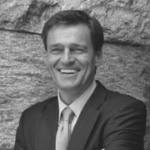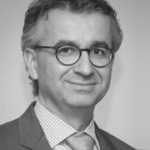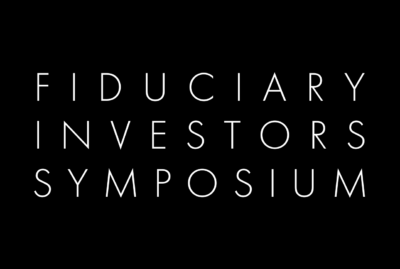An introduction to the conference by our underwriting partner, Robeco.
This conversation will explore how global institutional investors are approaching the challenge of balancing financial and impact goals. As co-CIO for sustainability at Bridgewater, former CEO of ATP and current board advisor to GIC and Novo Holdings, Carsten Stendevad brings a broad range of perspectives from both the asset owner and alternative asset manager perspective. He will share insights garnered from his experience building sustainability assessment capabilities to identify current and future sustainability leaders, and engineering strategic and tactical portfolios designed to deliver strong financial and impact results.
Scenario analysis shows that the ability of pension funds to pay their pensions will be severely impacted by climate. Under different scenarios interest rates, GDP and bonds will all be negatively impacted with inflationary pressure rising. How can investors innovate and adjust their portfolio construction to protect their funded position from this inevitable threat?
Portfolio alignment is a hot topic and key area of focus for the TCFD and COP26 private finance team. But what is it really telling us and how will it influence investment decisions? This session will look at the potential unintended consequences of the portfolio alignment metric, and how investors can incorporate forward-looking views into their analysis and how it affects investment decisions.
Nature is increasingly being viewed as a real economic asset - “natural capital”. Identifying the natural capital assets that can be used most effectively to offset carbon, such as land and forestry, can provide a real advantage in the path to decarbonising investment portfolios. This session examines the portfolio implications of transitioning to net zero with a specific focus on what benefit an allocation to natural capital can bring.
Buildings account for nearly 40 per cent of energy-related carbon dioxide emissions, according to UNEP’s 2020 Global Status Report. The ecological footprint becomes even bigger when you consider how much water and raw materials are used. The long-term impact investors can have on improving buildings’ ecological footprint can be huge. This session examines investors’ role and outlines the importance of a common measurement framework.
This case study will examine the approach by one of the world’s leading asset owners to incorporate sustainability, AP4. By implementing measures adapted to the asset class and style of investments, AP4’s team in alternative investments works to both reduce risks and capture opportunities related to the sustainability transformation.
Despite its name the investment industry doesn’t do much investment; it mainly shuffles ownership rights, even in private equity. The climate challenge requires new investment on a staggering scale: new generating capacity, the electrification of everything, emissions-free fuel, carbon capture and sequestration, new supply chains and infrastructure, plus the building of negative emissions technologies. This session looks at the opportunities for new investment, the risk/return trade-off and how investors should approach the opportunities.
Will there be a sustainable politics of sustainability? Professor Stephen Kotkin examines the politics of sustainability and the importance of transparency, measurement and compliance so that greenwashing does not prevail.
With a massive, nationwide effort the United States could reach net zero emissions of greenhouse gases by 2050 using existing technology and at costs aligned with historical spending on energy. Research from the High Meadows Environmental Institute plots a Blueprint for the next decade showing the key is overcoming execution challenges including the infrastructure deployment and the mobilisation of capital and labour. This session examines the implications for investors.
The challenge for infrastructure asset managers to achieve Net Zero by 2050 is immense. It requires detailed strategic planning, clear interim targets, critical investment, transparent insight and regular reporting, as well as strong leadership and clear governance frameworks. And all of this needs to be done inside a fiduciary responsibility to seek superior long-term net returns for investors and their beneficiaries.
Achieving carbon neutrality by 2060 will require radical changes. Formidable challenges lie ahead, but also investment opportunities with renewables, electric vehicles and energy storage set to benefit.
What does it really mean to achieve a net zero strategy? As more and more investors make pledges for net zero they are tasked with setting a strategy to achieve net-zero. This session looks at the challenges of implementing those goals in portfolios – what behaviour changes are needed and how do investors allocate?
This session examines the challenges investors face including ideology, working with boards, culture and scalable investments.
This session will examine the regulatory views around the world and the need for global standards for global investors.
A joint report by the International Energy Agency and the Centre for Climate Finance & Investment at Imperial College examines the risk and return proposition in energy transitions. It looks at publicly traded renewable power and fossil fuel companies in advanced and developing economies calculating the total return and annualized volatility of these portfolios over 5 and 10-year periods. Across all portfolios, renewable power generated higher total returns relative to fossil fuel. Annualized volatility for the renewable power was lower than fossil fuel in the global and advanced economies portfolios, but higher in the China and emerging market and developing economies portfolios.
Decarbonization and value creation can go hand in hand. The Boston Consulting Group - the consultancy partner of COP26 - has worked across multiple industries and investors to transform high emitting businesses while creating meaningful value in the process. In this session, BCG will share real world examples based on their experience, including with leading asset owners.
























